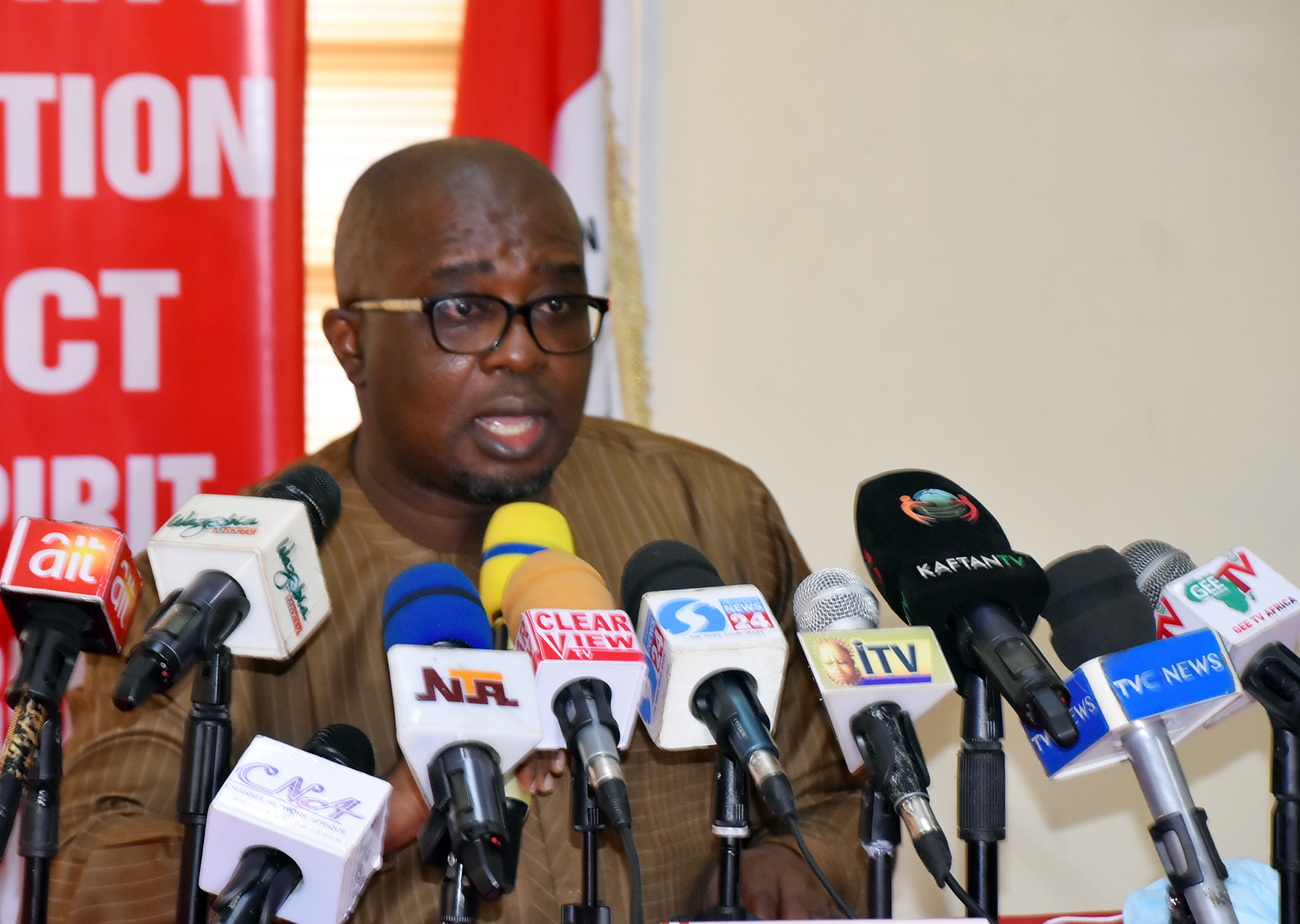Business
NDLEA, NAGAFF Collaborate Against Illicit Drug Importation

National Drug Law Enforcement Agency (NDLEA) has called for a working relationship with 100 percent Compliance Team of the National Association of Government Approved Freight Forwarders (NAGAFF) in order to curb the Illicit importation of drugs through the seaports.
Speaking at a courtesy visit to the secretariat of the 100 percent Compliance Team in Lagos, Commander, Tin Can Island Port NDLEA, Mr. Aminu Abubakar warned freight forwarders and their importers to desist from Illicit drug clearance from the ports stressing the need for proper sensitisation of importation.
While calling for the support and cooperation of the NAGAFF Compliance Team, Abubakar urged freight forwarders to desist from the spread of hard drugs through the seaports by sticking to their legitimate duties.
He noted that since the NDLEA launched the War Against Drug Abuse (WADA) in Abuja, several seizures have been made during cargo examination at the ports, with freight forwarders arrested and jailed for their involvem in the importation of hard drugs.
The NDLEA boss stated that from January 2022 till date, the agency has intercepted 1500 Kilograms of Tapendatol with a value of over N6million amongst others at the seaports.
According to him, Tapendatol is another type of Tramadol drug which is more potent and dangerous than the usual Tramadol.
“The agency has different units and strategies through which we fight the menace and monster of drug abuse, and trafficking into our country.
“This is the suppression of the supply of drugs, which we do at the seaports. We profile some containers at the seaports, and based on the profile, we target such consignment and ensure we conduct proper examination.
“Sometimes we work with intelligence information or on the basis of profile which informs what we do.
“The agency has some strategies, which include counselling drug abusers and public enlightenment on the effects and prevention of drug abuse. There are also rehabilitation centers”, he said.
It will be recalled that the Chairman of the NDLEA recently launched call centers which would soon be operational, where one can report issues or seek for help.
“We have gotten 1500 kilograms of Tapendatol drug worth over N6million from Apapa and Tin Can ports.
We can only imagine what it will do if it gets to places where it is intended. Nigeria is already in crisis. We have the problem of banditry, kidnappings and youth restiveness and the root cause of these acts emanate from abuse of drugs”, he stated.
On his part, the National Coordinator of the 100 Percent Compliance Team, NAGAFF, Alhaji Ibrahim Tanko, explained that most freight forwarders become liable to the crime of hard drugs importation because 60 percent of freight agents at the ports use their company names to import consignments on behalf of the importers.
While assuring NDLEA of the group’s support, the NAGAFF Compliance boss noted that about eleven members of NAGAFF have been innocently detained in prison due to such acts.
Tanko, however, stressed that freight forwarders should desist from using their company’s name to ship in consignments in favour of the importers to avoid being liable when there are infractions.
By: Nkpemenyie Mcdominic, Lagos
Business
NCDMB, Dangote Refinery Unveil JTC On Deepening Local Content
Business
Food Security: NDDC Pays Counterpart Fund For LIFE-ND Project
Business
Replace Nipa Palms With Mangroove In Ogoni, Group Urges FG, HYPREP
-
Rivers4 days ago
Four Internet Fraudstars Get Different Jail Terms In PH
-
Opinion4 days ago
Restoring Order, Delivering Good Governance
-
Business4 days ago
PH Women Plan Alternative Stew, Shun Tomato High Prices
-
Sports4 days ago
Nigerian Athletes Serving Doping Bans
-

 Niger Delta4 days ago
Niger Delta4 days agoNDLEA Intercepts 584.171kg Hard Drugs In Bayelsa … Arrests 559 Suspects
-
News4 days ago
Tinubu Never Stopped 5-year Visa For U S. Citizens – Presidency ?
-
Business4 days ago
Food Security: NDDC Pays Counterpart Fund For LIFE-ND Project
-
Business4 days ago
Industry Leaders Defend Local Content, … Rally Behind NCDMB

